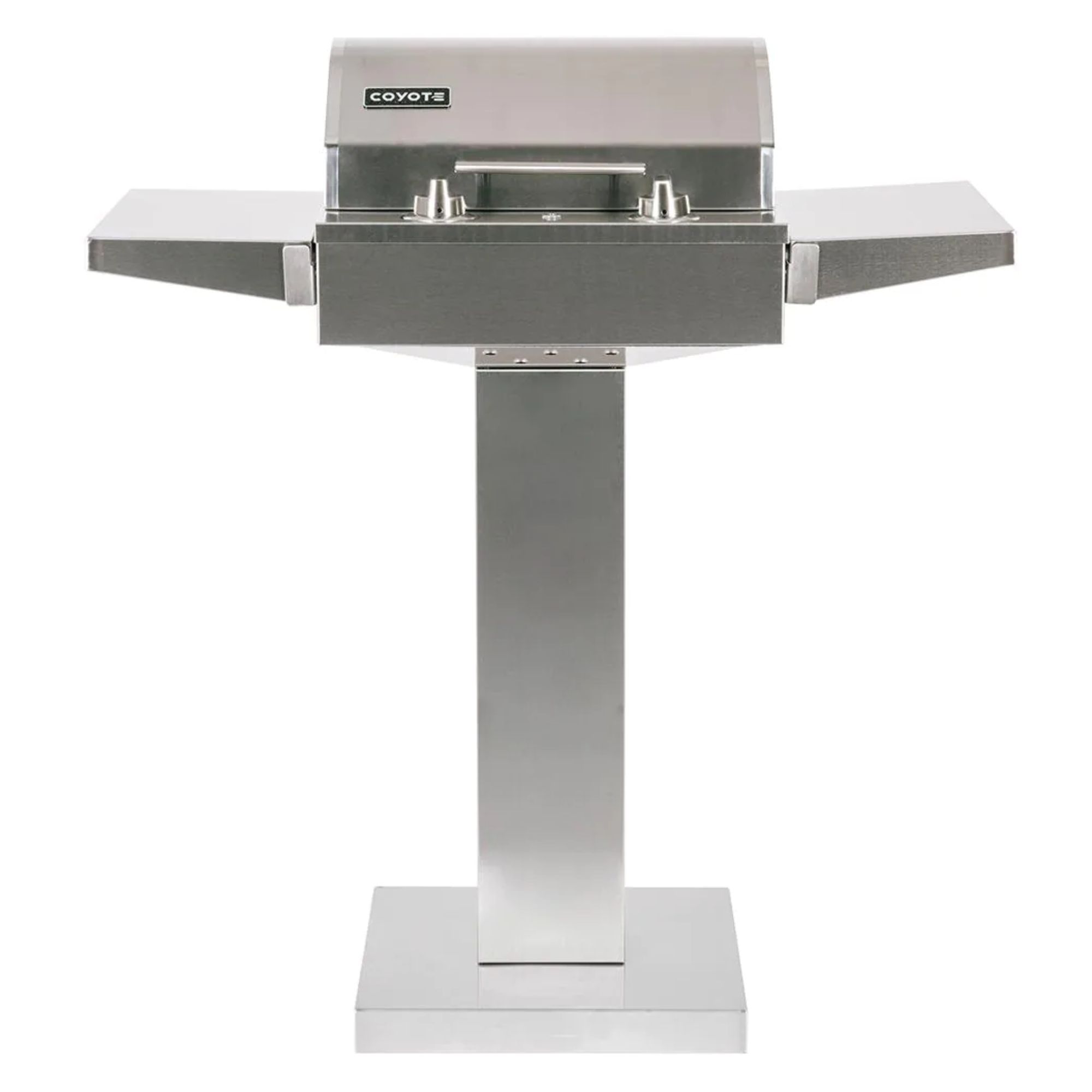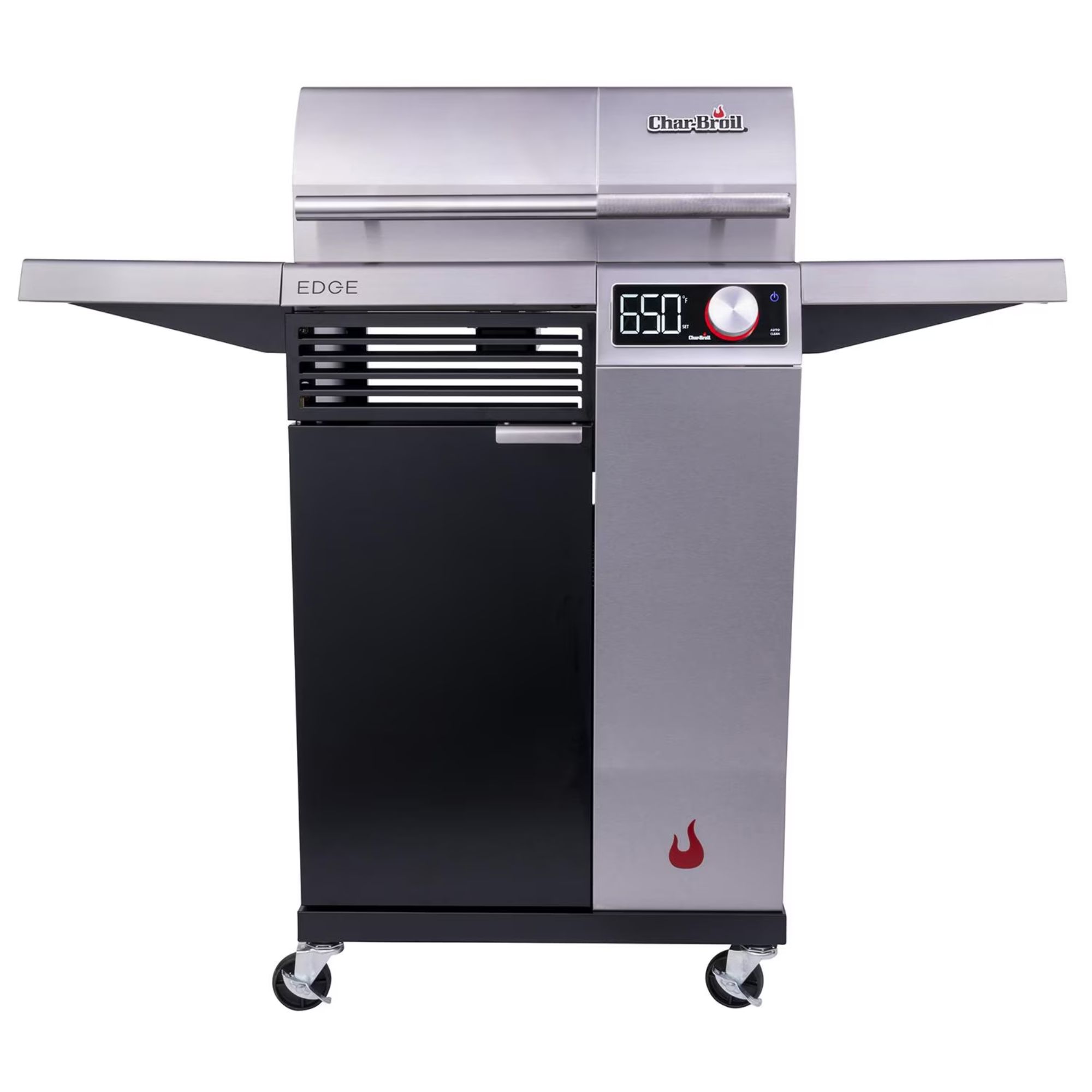Electric grills vs gas grills – which is best?
There's a lot to consider when it comes to electric grills vs gas grills

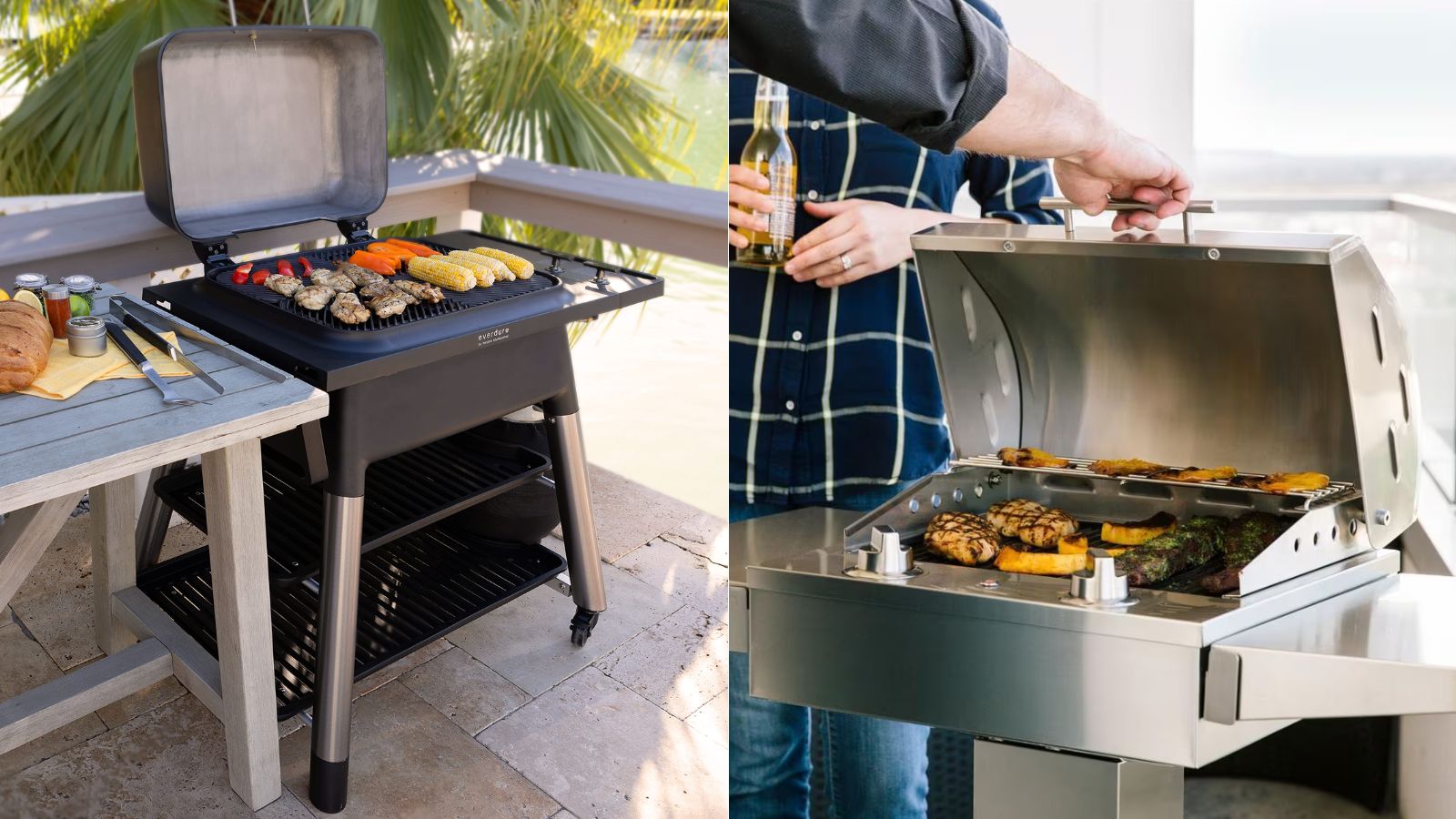
If your HOA won't let you smoke or use a charcoal grill, you have two options: electric grills and gas grills.
However, it's not always clear which type of grill is best. Gas can be a little unwieldy, and electric grills have a bad reputation as being a little tasteless.
I've taken a deep dive into both types of grills to help you decide. I've tested the best grills for most of my career, so I know up close and personal which type works for different homes. I also spoke to a grill expert for even more information.
Electric grills: Pros
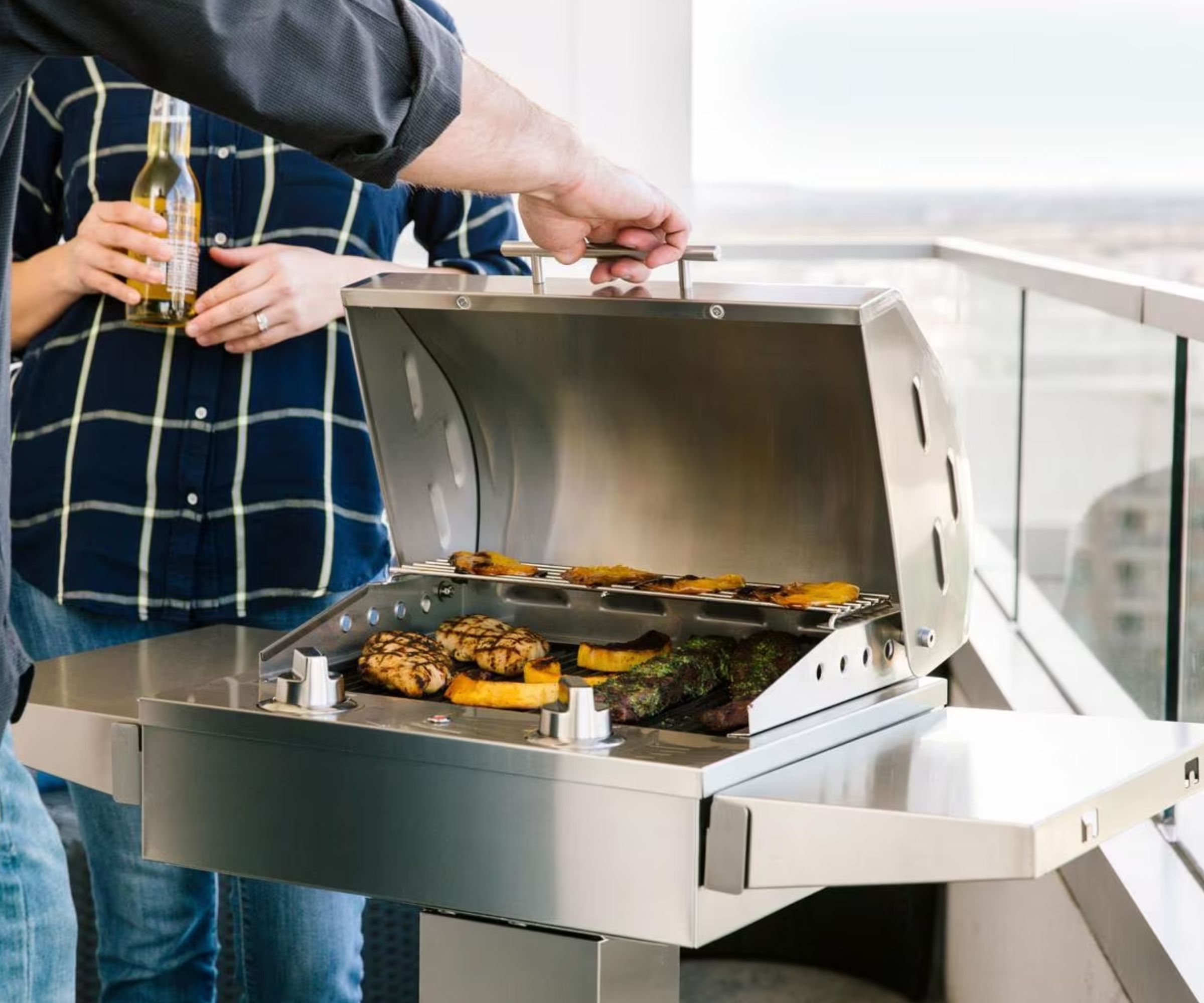
There are several benefits to using an electric grill. The first is that they're very flexible. Most small, table-top electric grills can be used both indoors and outdoors, so you can keep on grilling even in a freezing winter. This also means that even if you live in a very strict HOA, you can still grill.
Grill expert Mike Williams told me 'I have an electric grill because I have a family of 4, and we use ours for 4-5 meals a week. We can use it indoors when it’s cold or rainy and bring it outside when our New England weather decides to warm up.'
Mike Williams also told me that electric grills are a little safer than gas and charcoal grills. 'They are safer in that they do not require an open flame to produce heat. Because they don’t have an open flame, there is a much smaller chance of any flare-ups.' This also means an easier cooking experience, because unlike gas grills and charcoal grills, which can have cool spots and flare-ups, an electric has uniform heat across the surface of the grill.
They are also potentially greener than gas grills or charcoal grills. Though lots of charcoal is sustainably sourced, the smoke emitted from a charcoal grill is bad for the environment. Propane is a by-product of the oil industry, so has a bad carbon footprint. However, if your electric grill is running on electricity produced in a coal-fired power station, it may not be much cleaner than either other type.

Mike Williams is the Vice President of Sales and Marketing at Kenyon. Kenyon is an electric grill company that makes portable, smokeless, and flameless electric grills that help make grilling season run year-round. Mike is an expert on all things grilling.
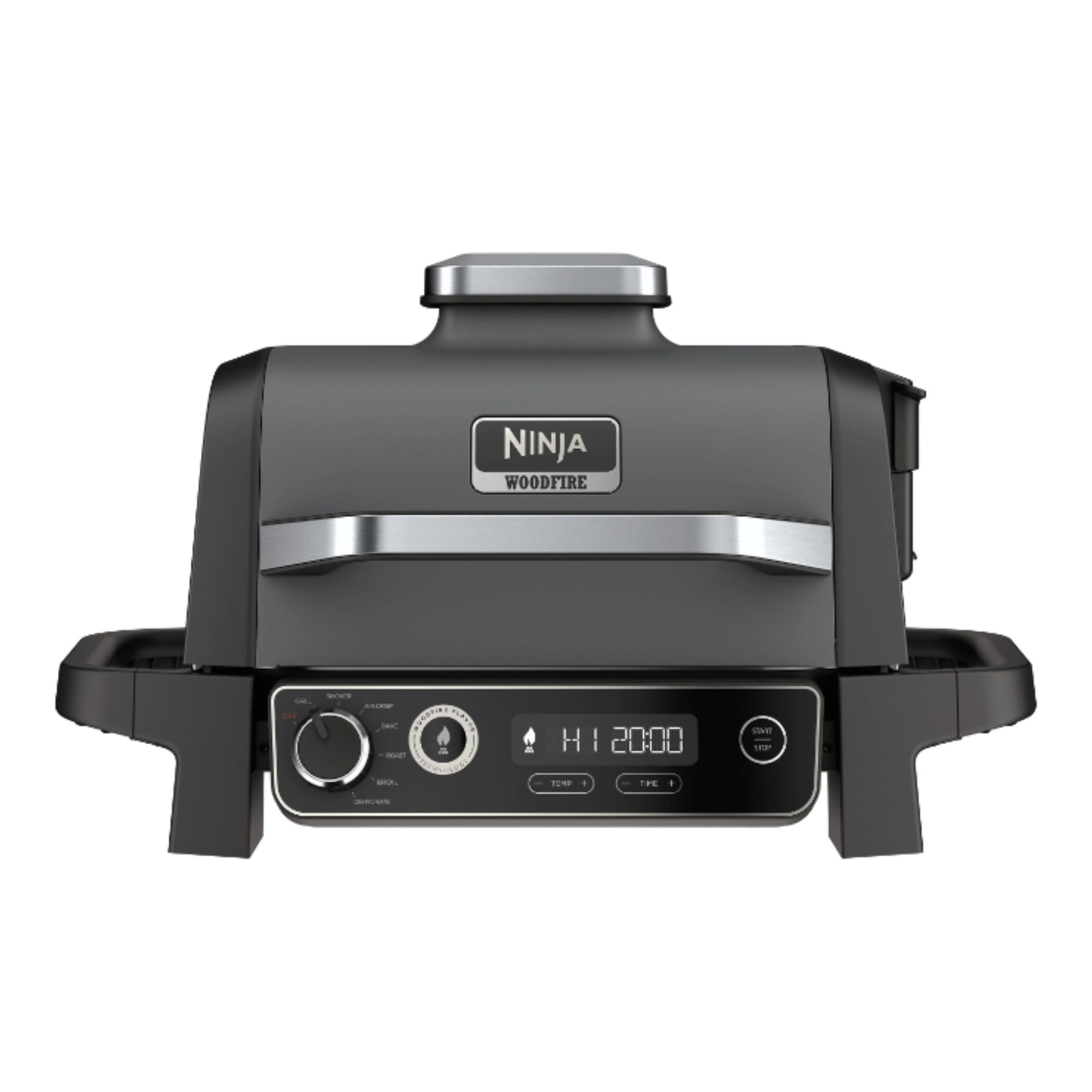
Our tests found that this little grill is surprisingly great at grilling and - most surprisingly of all - smoking. The only real downside is that it can't feed a crowd.
Electric grills: Cons
Flavor is one of the biggest drawbacks of electric grills. They're the least flavorful way of grilling. I've often said that gas grills taste a little sterile in comparison to charcoal grills, but electric grills are even worse. Charcoal tastes so good because fats and oils from your food drop onto the coals and evaporate, making delicious, moist smoke that infuses your ingredients with smoky flavor.
This doesn't happen with gas grills, but the flames mean that it happens a little. Some gas grills almost get there; Weber grills have 'Flavoriser' bars that help to imitate the effect, and you can find ceramic briquettes for gas grills that work similarly to charcoal. However, it's not the same. None of this is possible on an electric grill, so when it comes to flavor, there's little difference between an electric grill and frying a burger in a skillet.
Another drawback with electric grills is that they tend to be pretty small. The Ninja above is tiny, with a 141 sq-inch cooking surface. It's more than 4 times smaller than most gas grills, so it doesn't work for feeding large crowds of people unless you're cooking hot dogs.
Mike Williams agrees. He told me 'The most glaring drawback of an electric grill is that they are often smaller than gas grills. While this is convenient for some, gas or charcoal grills can accommodate a feast for large gatherings, but many electric grills would require multiple rounds to achieve this.'
Gas grills: Pros
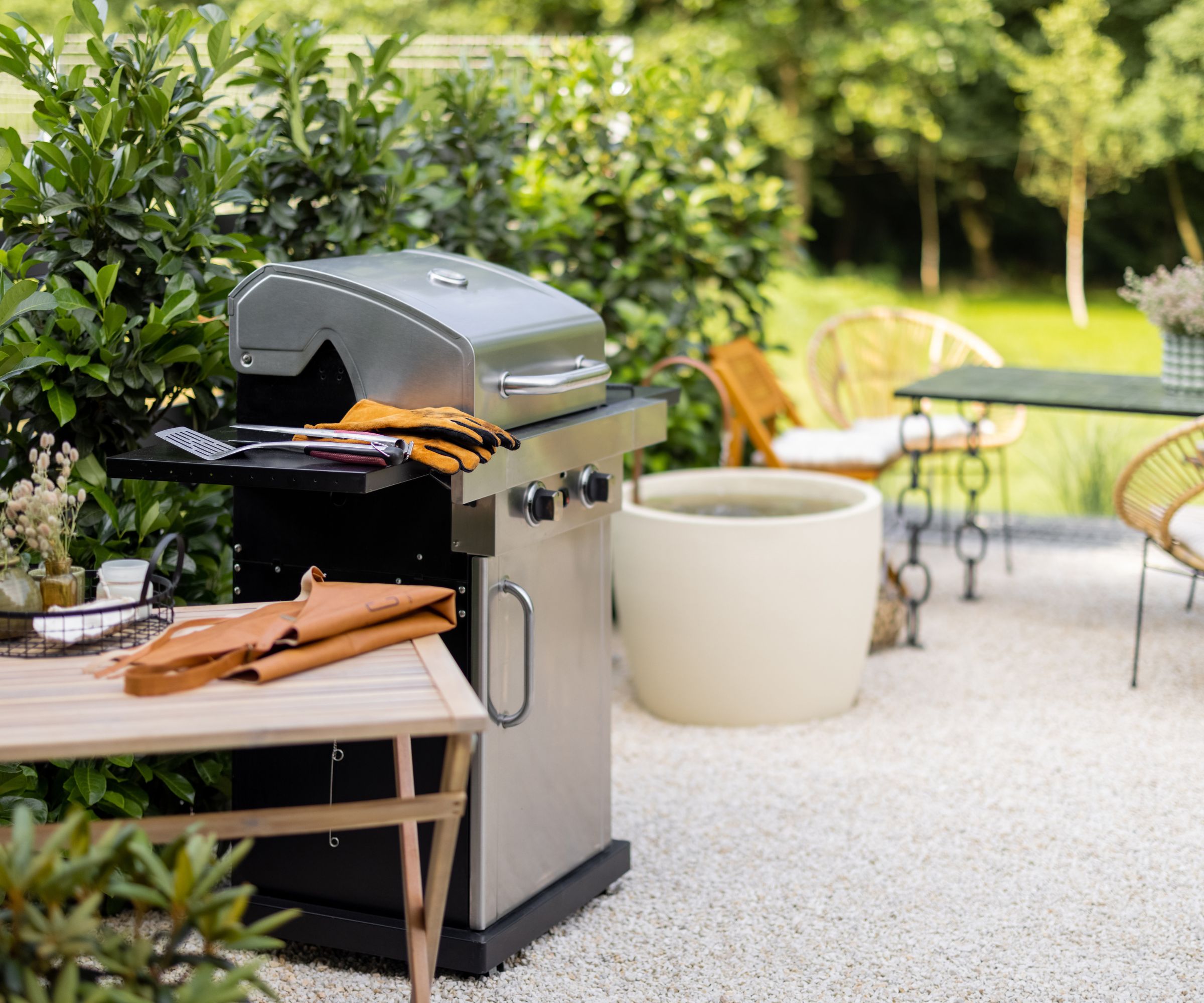
Gas grills are much bigger than electric grills, so if you're feeding a crowd, you need a gas grill. One of our favorite large gas grills can cook 40 burgers in a single sitting, whereas some electric grills would tap out at 4.
They are also outfitted with bonus features that you rarely see on electric grills. Gas grills often come with side burners for cooking sides, warming racks for heating side dishes, and rotisserie functions for delicious roasted chicken. Electric grills are essentially griddles and rarely have these functions.
Gas grills also simply taste better than electric grills. My experience is that they're not as delicious as charcoal, but still better than electric grills, which don't impart any smokiness to your food at all.
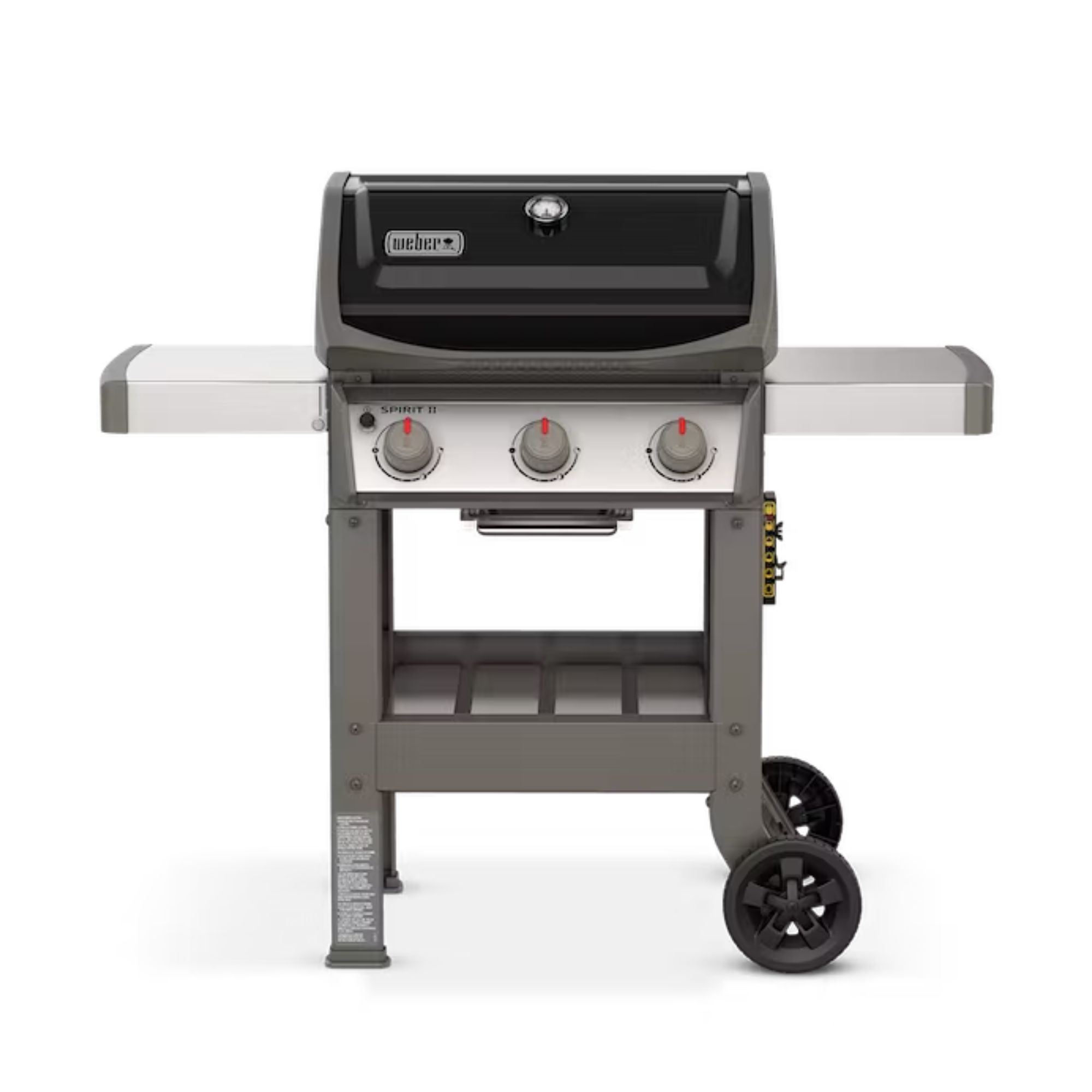
This is still my favorite ever gas grill. It's easy to use and makes delicious food. It's really all you need for grilling.
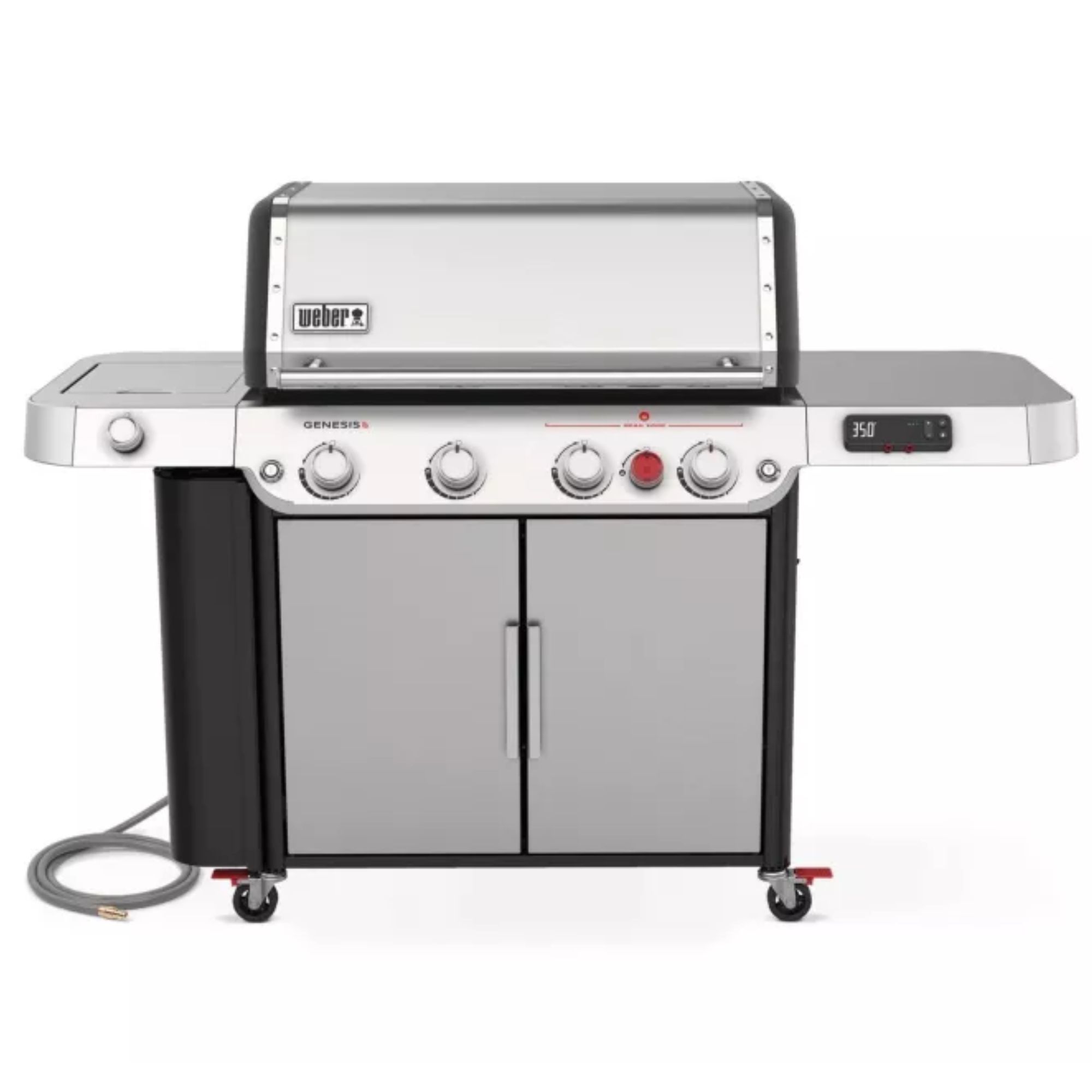
This is still my favorite ever gas grill. It's easy to use and makes delicious food. It's really all you need for grilling.
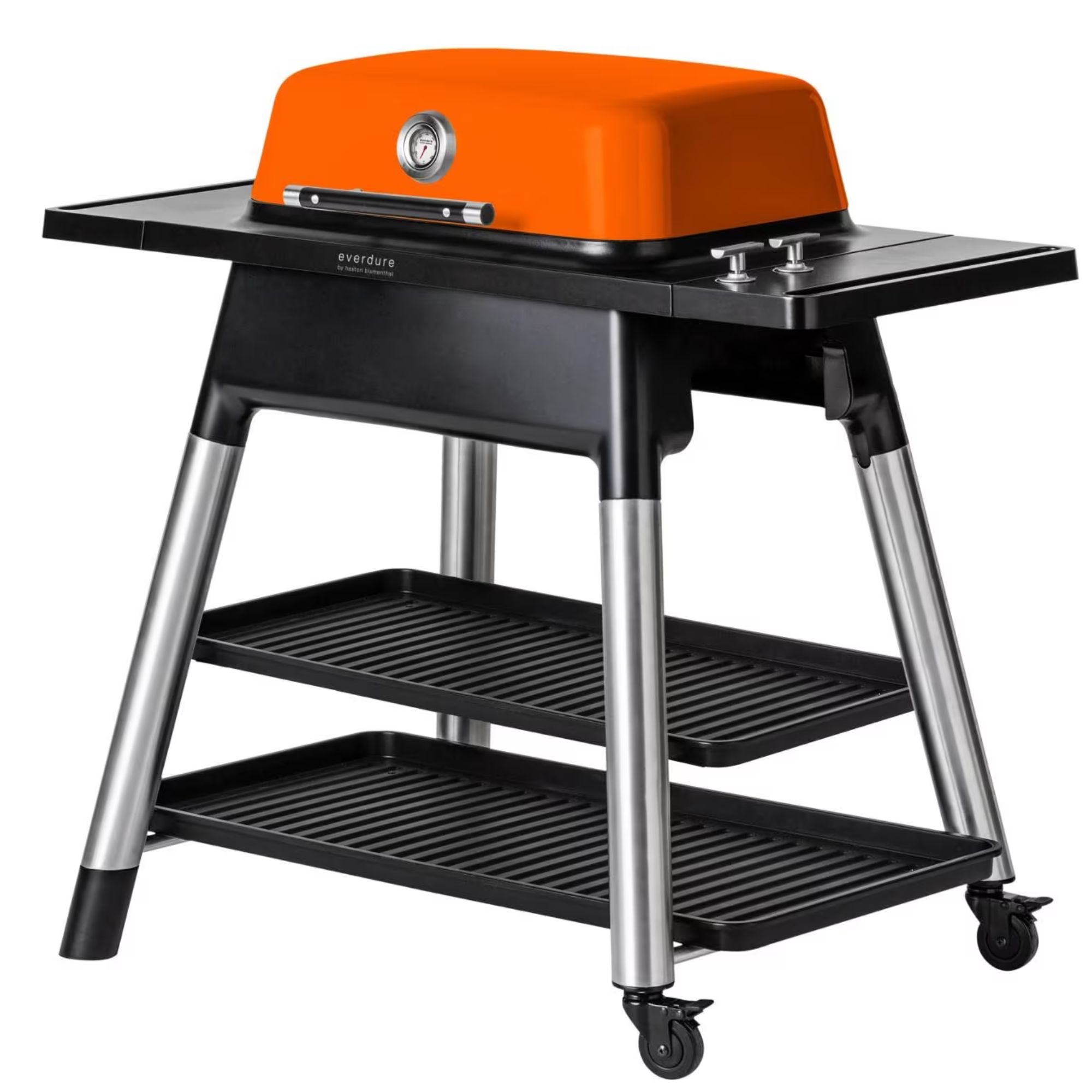
Most grills are ugly chrome, but we loved this mid-century modern grill straight out of the box.
Gas grills: Cons
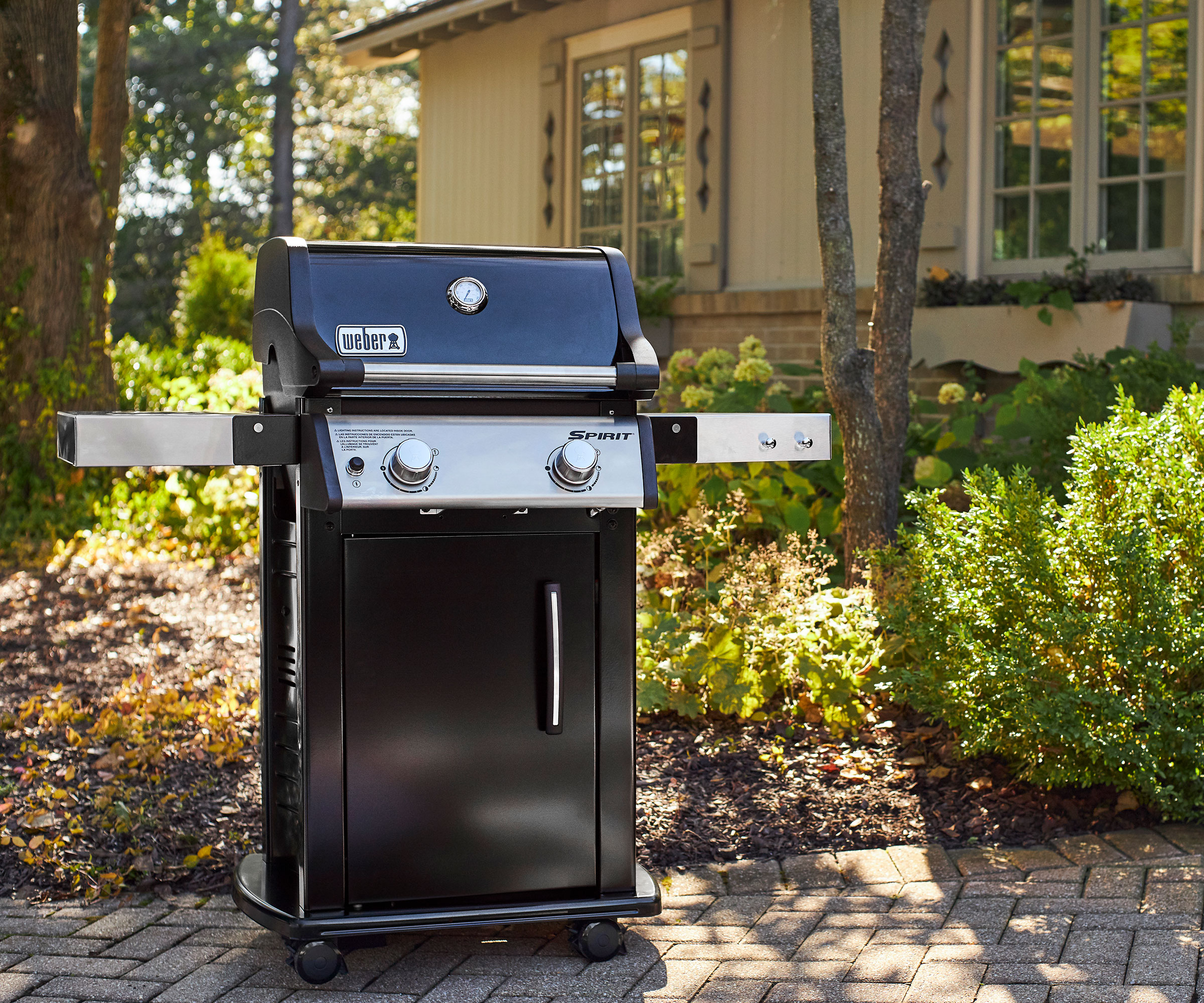
Electric grills are much more convenient than gas grills. A gas grill needs you to think about some pretty boring propane logistics. With propane, you have to go through the rigmarole of refills, as well as work out how and where you will safely store the propane when you aren't using it. With an electric grill, all you need to do is plug it in and switch it on.
Gas grills are also less efficient than electric grills. They're slower to heat up than electric grills and tend to have cool spots. Electric grills are faster and more consistent.
This efficiency also means that electric grills are much cheaper in the long run. With an electric grill, you don't need to shell out for new propane every few cookouts. An electric grill takes about as much power as any other large appliance.
That's before you factor in that electric grills are also cheaper upfront. Granted, this is largely because they're smaller than gas grills, but even the pricier electric grills are cheaper than entry-level gas grills.
Buy electric if:
- You want something easy
- You want something to use indoors
- You want something compact
- You want something cheap
Buy gas if:
- You want better-tasting food
- You want bonus features
- You want to cook for a crowd
Grill FAQs
Can I use an electric grill indoors?
Not every electric grill can be used indoors, but most tabletop electric grills can be used indoors. Just check the safety manual before you bring your grill inside.
If electric grills don't look like your thing, I've also taken a deep dive into the debate between charcoal vs gas grills.
Design expertise in your inbox – from inspiring decorating ideas and beautiful celebrity homes to practical gardening advice and shopping round-ups.

As a gardens and lifestyle contributor, Alex makes sure readers find the right information to help them make the best purchase. Alex got his start in reviewing at the iconic Good Housekeeping Institute, testing a wide range of household products and appliances. He then moved to BBC Gardeners’ World Magazine, assessing gardening tools, machinery, and wildlife products.
